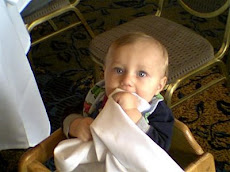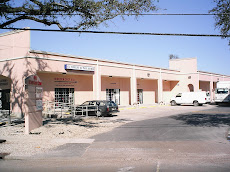

In our continual study of World War ll at SVDP-ALC, we recognize the importance of the day in history. Today is the 65th anniversary of D-Day, the Invasion of Normandy. On this day in 1944 Gen. Dwight D. Eisenhower led all the Allied forces in Europe in one of the most daring undertakings in human history. Starting on the eve of D-Day, June 5, US and British paratroopers landed in France as a prelude to the full-scale amphibious invasion on June 6.
Opposing Eisenhower (and his subordinates, Omar Bradley and Bernard Montgomery) were the German gemerals von Rundstedt and Erwin Rommel. Adolf Hitler himself even entered directly into the chain of command during this battle.
The Allies attacked at five beaches -- Gold, Juno, and Sword for the British and Canadians; and Utah and Omaha for the Americans. Although all of the beaches saw terrible fighting, the worst beach for the Allies was clearly Omaha which was right in the middle of the invasion site and was heavily defended by the Germans.
After many losses, the American forces moved inland, uniting the five Allied beaches and creating a foothold in Europe. The Nazi "Atlantic Wall" had been breached. From this point on the war would continue for many months in Europe, but Hitler's days were now numbered.
In the photos above we see Gen Eisenhower (IKE) speaking with members of the 101st Airborne Division in England on June 5, 1944 just minutes before they would go into combat -- parachuting behind enemy lines. In the other photo we see a LCVP (Landing Craft Vehicle Personnel), better known as a Higgins Boat, conducted by the US Coast Guard as it lands men from the US Army's 1st Division on Ohama Beach on D-Day. Omaha was the deadliest of all the landing beaches, and it is almost certain that many of the men seen in this photograph did not survive the day -- a day which the German general Erwin Rommel called "The Longest Day." Rommel, a brilliant military tactician, knew that he had to stop the Allies on the beaches or lose the battle, and even the war. He tried, but failed to do so. He was outmaneuvered by Gen. Eisenhower and overwhelmed by Allied air and naval superiority. But in reality what won the battle for the Allies was the bravery and determination of the ordinary footsoldier, the infantryman. Despite a multitude of dangers -- rough seas, cannon fire, land mines, machine gun fire, and German military skill and discipline -- the Allies -- and especially the Americans at Omaha-- did the impossible.
Winthin a year Adolf Hitler would be dead and the war, in Europe at least, would be over.
(Note: The two photos are from wikipedia commons and in public domain.)
--Adrian





















No comments:
Post a Comment